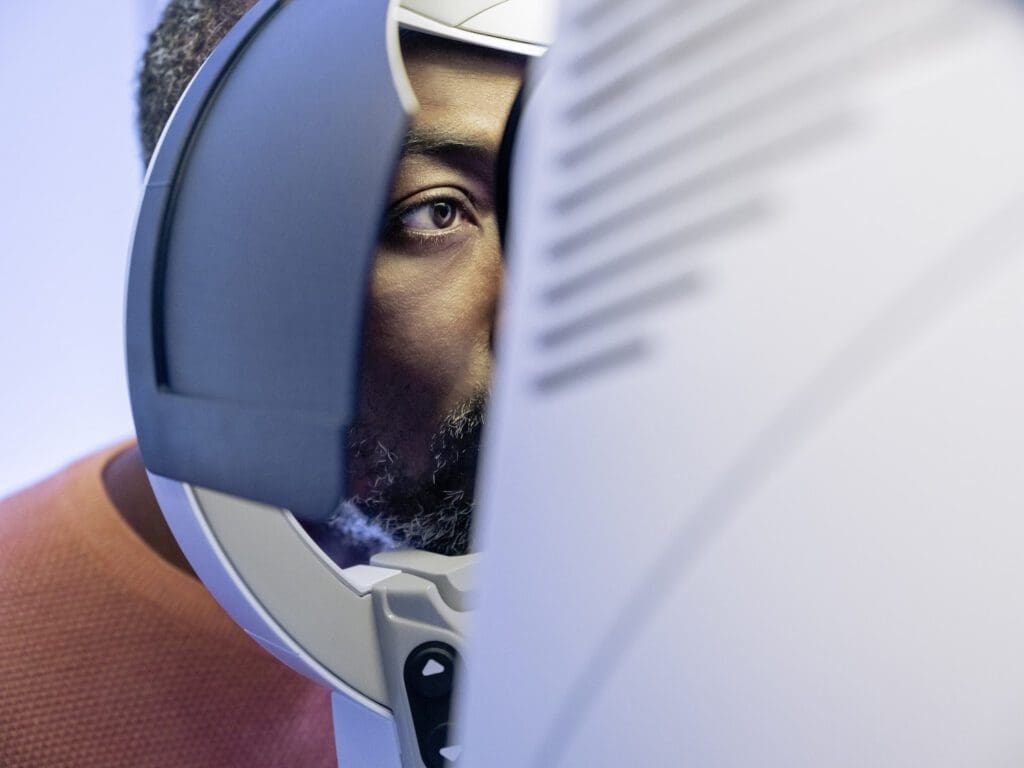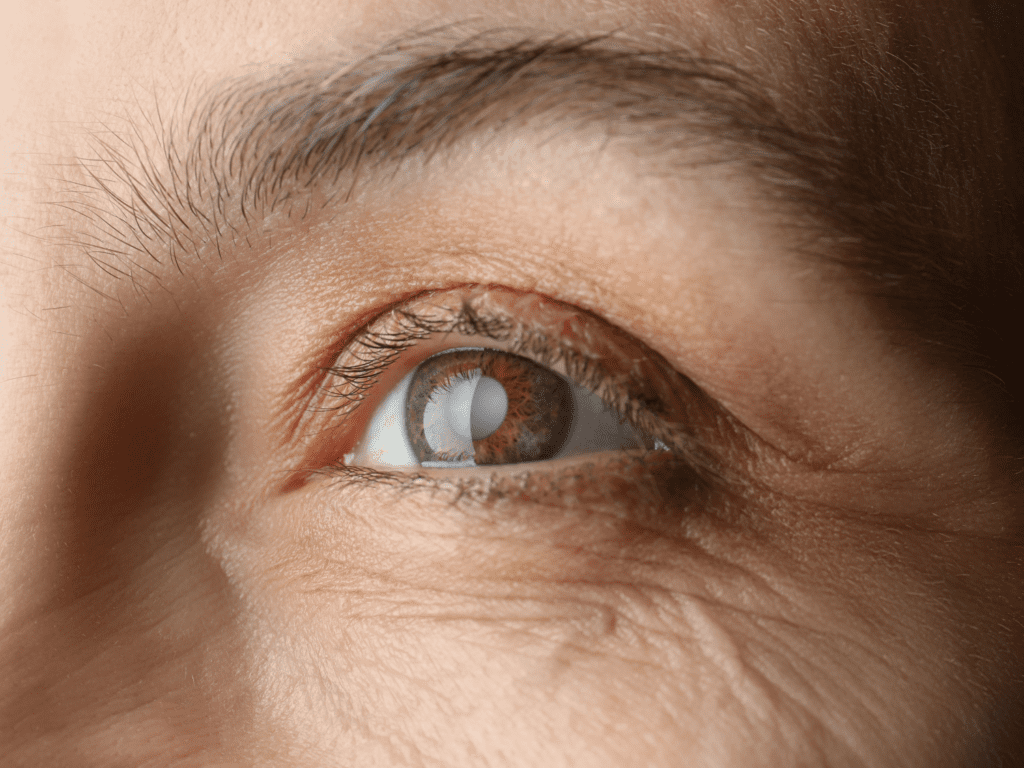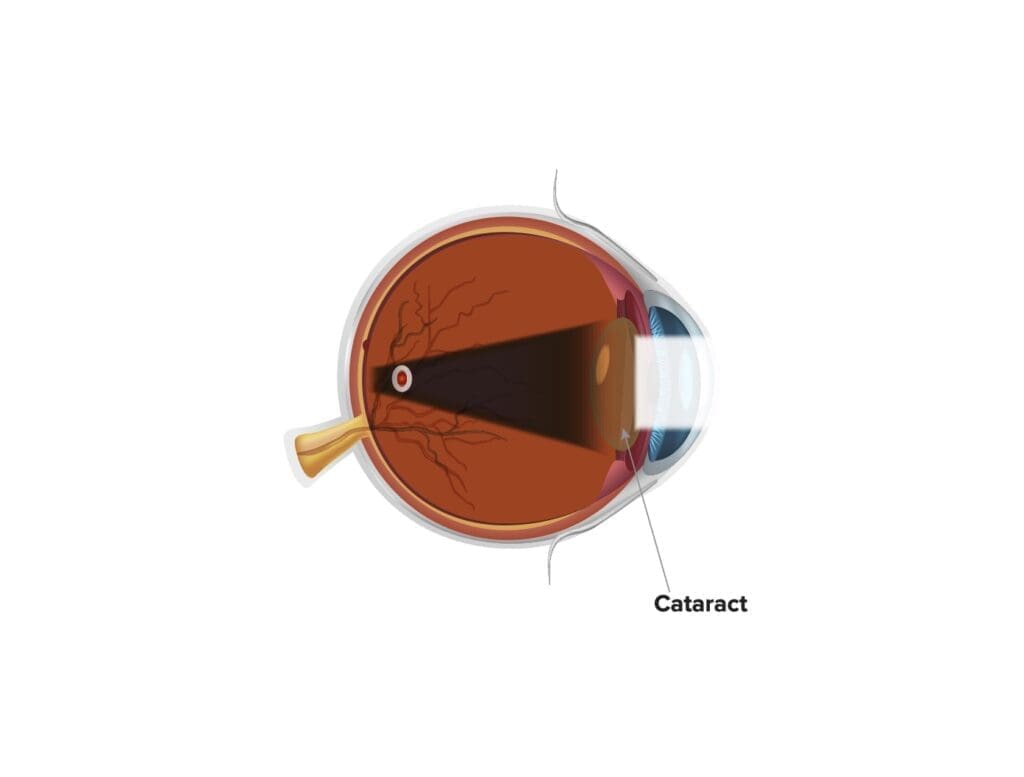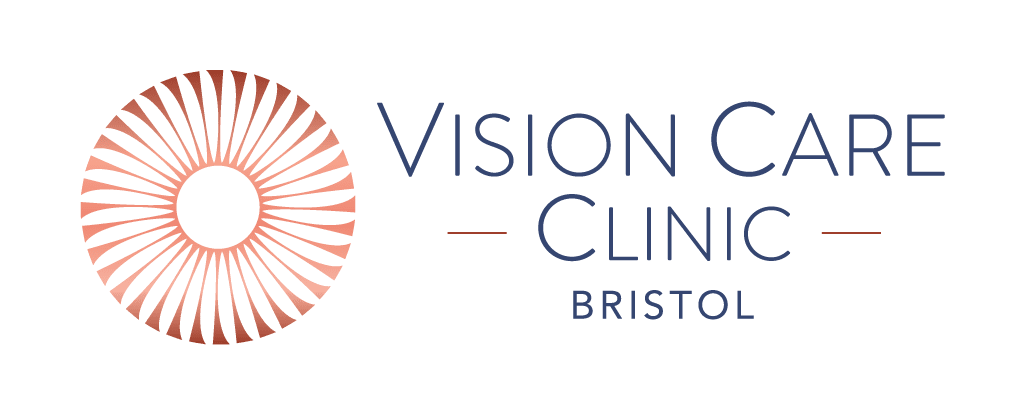Cataracts are very common, and millions of corrective procedures are performed worldwide every year, with excellent results.
Symptoms can include:
- cloudy, blurred vision
- poor night vision
- haloes around lights
- yellowing, sepia effect vision, which diminishes colours
What is a Cataract?
A cataract is a common age-related eye condition and refers to the gradual clouding of the natural crystalline lens within the eye. This lens is part of the eyes overall focusing power, so clarity is very important for good vision. A cataract refers the gradual clouding of this lens, causing blurred, hazy vision and colours can become dull and less vibrant. Cataracts typically develop slowly over time, leading to a variety of symptoms such as difficulty reading, driving at night, and the need for additional lighting for certain tasks. While cataracts are primarily associated with aging, they can also occur as a result of trauma or even at birth. Some medical conditions such as diabetes and high blood pressure or steroid medications can increase the risk of development, along with certain lifestyle factors, such as smoking, prolonged exposure to sunlight, and obesity.
Can Cataracts be treated?
The good news is that cataracts can be effectively treated with a simple, surgical procedure, in which the cloudy natural lens is replaced with a carefully pre-calculated artificial, intraocular lens, restoring clear vision and enhancing quality of life. Cataract surgery is a safe and very common procedure, with millions of performed worldwide, every year, with excellent results.


FAQ
What are the symptoms of a cataract?
Cataract symptoms vary depending on severity and maturity of the cataract. Initially, glasses prescriptions can change more frequently but as cataracts worsen so does the quality of vision, even with glasses. Colours can become less vibrant, increased blurring and, glare and haloes around lights at night.
How are cataracts treated?
A cataract treatment is usually performed as an outpatient procedure using topical anaesthetic.
During surgery, the cloudy, natural lens is removed and replaced with a clear lens implant called an intra-ocular lens (IOL). The whole procedure takes around 10-15 minutes and is a minimally invasive technique.
What vision can I expect after cataract surgery?
All patients should notice relief from their cataract-related symptoms. However, many people are unaware that the vision achieved after surgery depends on the type of intra-ocular lenses (IOL) implanted. It is a great opportunity to treat the cataract and simultaneously free patients from the need for glasses at various distances.
At VCC, we offer three types of lenses, standard, enhanced and premium. Further to a detailed consultation with your surgeon, including a thorough clinical examination and time to find out about an individual’s lifestyle and needs, your options will be explained, and a recommendation will be made by your consultant.
How long does it take to recover?
Most patients experience improved vision within a few days and can typically resume day-to-day activities within a week. Patients preferring enhanced and premium lenses will also experience a period of neural adaption as they get used to their new vision.
Is a cataract treatment permanent?
A cataract procedure is permanent; however, some patients can experience posterior capsular opacification (PCO). This is a condition that is experienced by around 20% of routine, uncomplicated cataract patients. The intra-ocular lens is placed in the eyes’ natural capsule or bag; this can thicken and lose transparency. Some patients describe this as the cataract growing back.
How do you treat posterior capsular opacification?
To clear the vision, a simple procedure called a laser capsulotomy is performed. This is performed in the clinic, sitting facing a machine called a YAG laser. First, the pupil is dilated and then the YAG laser is used to create a hole in the thickened capsule. Sometimes anaesthetic drops and a lens on the front of the eye for stability are used. No further special aftercare is necessary.


Cataract Surgery at Vision Care Clinic
Contact our expert team today on 0117 905 7722 to book in for your consultation for a private cataract treatment at Vision Care Clinic.
Vision Care Clinic are Bristol’s leading private eye clinic, performing laser eye surgery, corneal and retinal eye treatments as well as cataract surgery. Our consultant led care, means you are in safe hands from diagnosis to surgery through to aftercare.
Cataract Surgery
If you suspect you may have cataracts or are experiencing vision changes, it is essential to consult an experienced ophthalmologist for a comprehensive eye examination and proper guidance regarding cataract treatment options.
While cataracts cannot be prevented or reversed through medications or lifestyle changes, they can be effectively treated with surgical intervention. This is the most effective treatment to rejuvenate vision and depending on the type of intraocular lens selected, can even eliminate or reduce the need for glasses after surgery. Vision Care Clinic offers premium, enhanced, and complex cataract surgery depending on the severity of the condition and whether there are any further vision disorders present which patients can correct in one procedure. So patients can enjoy glasses free vision at all distances, even reading.
Cataract surgery is typically performed as an outpatient procedure and is known for its high success rate and low risk of complications. Cataract surgery is often performed one eye at a time and recovery is quick, with most individuals experiencing improved vision within a few days. Some patients will require, prescription eyeglasses after surgery to fine-tune vision, this depends on the type of implanted lens, agreed with your surgeon.
Why choose Vision Care Clinic for my cataract procedure?
Trusted
Vision Care Clinic are experienced, caring, local consultants.
Precision
We offer thorough examinations and consultations.
Flexibility
We offer a complete range of vision choices.
Safe
We are experts in our field and offer patient focused care.
Excellent Results
Our cataract procedures will rejuvenate your vision to suit your lifestyle.

